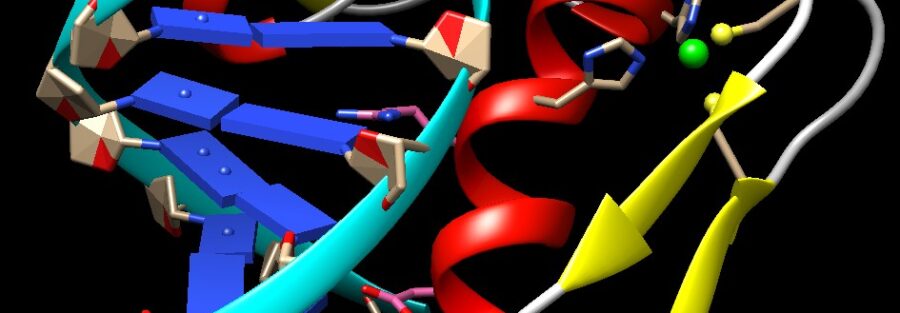Breast cancer is all too common. One in eight women who lives to age 85 years will develop breast cancer over the course of a lifetime.
Much is known about breast cancer prevention and treatment. Science has produced advanced drugs and therapies that can lead to better outcomes. And changes in diet and lifestyle are related to less risk of cancer and preventing recurrence.
A few studies have looked at the microbiome and a potential role for probiotics.
Indeed, breast microbiota may be fertile ground for intervention. Microbial breast composition is linked to cancer risk; breast milk, rich in lactic acid bacteria, may counter some cancer-causing species. That may be one reason why breastfeeding reduces cancer risk for mother and child.
Also, healthy breast tissue microbes differ from those of tissue taken from women with breast tumors. One novel study showed that higher relative abundances of bacteria that had the ability to cause DNA damage in vitro were detected in breast cancer patients, as was a decrease in some lactic acid bacteria, known for their anti-carcinogenic properties. Moreover, pathogenic bacteria are inextricably linked to cancers by various means: damaging DNA, producing carcinogenic metabolites, encouraging new tumors and interfering with tumor suppressors. Although these findings indicate a correlation, causality remains to be documented.
Probiotics and breast cancer
Several epidemiological studies show a negative association between the consumption of fermented products that may contain probiotics and breast cancer development. Although the role of probiotic species in cancer is still being defined, the research suggests possible actions including:
- Binding of pathogens that convert procarcinogens to carcinogens
- Inhibition of carcinogens and/or procarcinogens by the production of lactic acid and bacteriocins
- Activation of the host’s immune system
- Decrease of intestinal pH to reduce microbial activity
A review of probiotic research in breast cancer titled “Modification in the diet can induce beneficial effects against breast cancer” appeared in World Journal of Clinical Oncology.
Research in animals
Numerous in vitro and animal studies have investigated the effect of probiotics against breast cancer. See this Table 1 . Here are some notable ones:
- Milks fermented by Bifidobacterium infantis, Bifidobacterium bifidum, Bifidobacterium animalis, Lactobacillus acidophilus and Lactobacillus paracasei inhibited breast cancer cell line growth in vitro in an older study. Although the mechanism of the antitumor activity was not clear, the authors suggested that fermented milk produced compounds with antiproliferative activity.
- Milk fermented with a high proteolytic strain of Lactobacillus helveticus delayed tumor growth in an experimental breast cancer model using BALB/c mice. This effect was related to the immunoregulatory capacity of the fermented milks that decreased IL-6 levels, modulating the relationship between immune and endocrine systems.
- L. acidophilus strains isolated from yogurt and also from neonatal stool induced a significant decrease in breast tumor growth using a mouse model. This effect was linked to the alteration of pro-inflammatory cytokine production.
- Another study with a strain of L. acidophilus in a mouse model showed that compared to controls, this treatment promoted immune responses and may increase the antitumor response via stimulation of the production of pro-inflammatory cytokines and inhibition of the production of anti-inflammatory cytokines.
- A strain of Lactobacillus casei reduced the growth rate of tumor and prolonged the survival of mice with invasive ductal carcinoma. This effect was associated to the improvement of the host immune response by inducing Th1 cytokine profile and natural killer cells.
- A later study evaluated the effect of milk fermented by a different strain of L. casei on a breast cancer model in mice. Here too the immune response against this breast tumor was stimulated, avoiding or delaying its growth.
- A strain of Lactobacillus plantarum suppressed tumor frequency and improvedimmunomodulatory mechanisms in a mouse model.
- Mammary carcinogenesis in selected mice was inhibited by routine exposure to a strain of Lactobacillus reuteri in drinking water.
Research in Humans
On the other hand, very little study has been done with humans.
In a Japanese population-based study, 306 women with breast cancer and 662 controls aged 40 to 55 years were interviewed. The authors concluded that regular consumption of a strain of L. casei and soy isoflavones since adolescence was significantly associated with decreased breast cancer risk in this group.
Takeaway
Probiotics when used in animal models appear to have positive effects in breast cancer prevention and treatment. But studies in humans are needed before the clinical use of probiotics is recommended for this targeted application.
References
Aragón, Felix et al. “Modification in the diet can induce beneficial effects against breast cancer.” World journal of clinical oncology vol. 5,3 (2014): 455-64. doi:10.5306/wjco.v5.i3.455
Eslami-S, Zahra et al. “Microbiome and Breast Cancer: New Role for an Ancient Population.” Frontiers in oncology vol. 10 120. 12 Feb. 2020, doi:10.3389/fonc.2020.00120
Mendoza, Luis. “Potential effect of probiotics in the treatment of breast cancer.” Oncology reviews vol. 13,2 422. 27 Sep. 2019, doi:10.4081/oncol.2019.422


